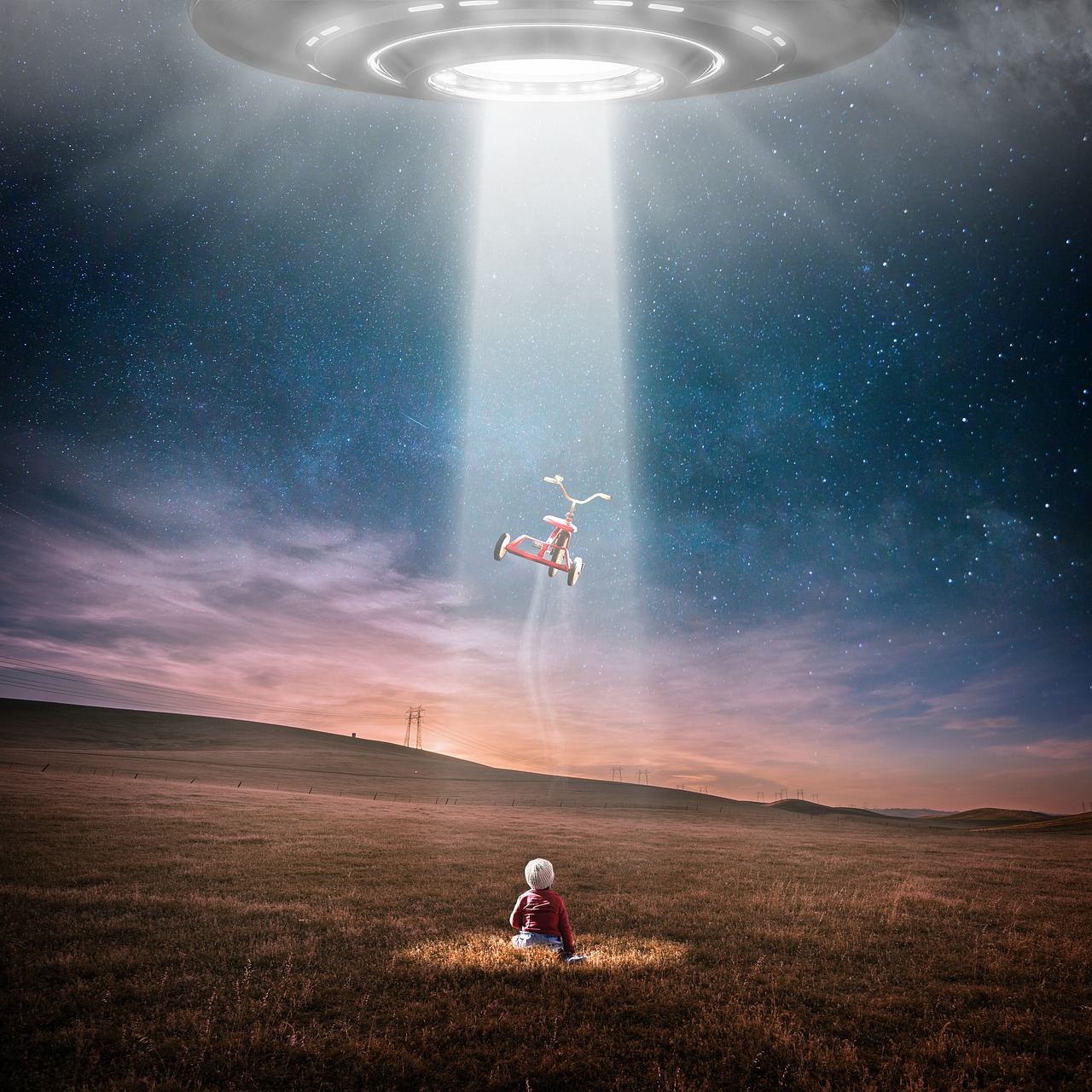Imagine stepping into a time machine and landing in the heart of an ancient civilization. Instead of dusty rituals and primitive beliefs, you find stories of cosmic battles, flying machines, beings from other worlds, and journeys through alternate dimensions. It’s shocking, but true—many ancient religions dreamed up ideas that sound like they came straight from the pages of modern science fiction. These ancient stories weren’t just about gods and heroes; they explored mysteries of the universe in ways that still spark our imagination today. Could it be that our ancestors were the original science fiction writers, dreaming of worlds and wonders far beyond their everyday lives?
The Universe as a Giant Puzzle

For many ancient peoples, the universe wasn’t a random jumble of stars and planets—it was an organized masterpiece. Take the ancient Egyptians, who believed the sky was the body of a goddess stretched over the earth, and that each star had its place in a cosmic order. Their gods acted like cosmic engineers, keeping everything in check. This idea of a universe run by rules and powerful beings isn’t so different from modern sci-fi stories where galaxies are governed by mysterious forces or alien overseers. Even today, people are fascinated by the idea of the universe as a giant puzzle, full of hidden rules and secrets just waiting to be unlocked.
Gods Who Could Be Aliens

In ancient times, gods often had abilities and origins that were out of this world—literally. The Sumerians, for example, described their gods, the Anunnaki, as visitors from the sky who came to Earth for a special mission. These beings were said to have advanced knowledge and technology, sometimes even creating humanity to work for them. That sounds a lot like the plot of a modern science fiction blockbuster about aliens tinkering with Earth. Stories like these make you wonder if ancient people were trying to explain strange encounters or just letting their imaginations soar. Either way, the idea of gods as advanced extraterrestrials blurs the line between religion and sci-fi.
Strange Machines in Ancient Stories

What if you read about a flying machine in a text that’s thousands of years old? The Vedic texts from ancient India mention “Vimanas”—flying chariots that could zip through the sky or even travel to other worlds. In the Bible, the prophet Ezekiel describes a vision of a mysterious vehicle with wheels inside wheels, surrounded by fire and light. To ancient people, these stories must have sounded magical, but to modern readers, they look a lot like early ideas about spaceships and advanced technology. It’s almost hilarious to think that people from centuries ago were already dreaming up the kind of vehicles we still hope to invent.
Prophets and Ancient Time Travelers

Prophecies and visions of the future were a big part of many ancient religions. The Mayans, for example, had a calendar so complex that some people thought it could predict the end of the world. Their understanding of time as a series of repeating cycles hints at the possibility of time travel—an idea that’s at the heart of many sci-fi stories. When prophets described seeing future events or alternate realities, were they just imagining things, or did they have a deeper understanding of how time works? It’s inspiring to see that the desire to peek into the future is as old as humanity itself.
Creation Myths and Cosmic Explosions

How did everything begin? Ancient myths often tried to answer this question with wild, creative stories. In Hinduism, the universe is said to have sprung from a single spark of Brahman, spreading out in all directions—a description that sounds a lot like the modern Big Bang theory. Similarly, the Norse myth of the world being born from fire and ice meeting in a void has echoes of cosmic evolution. These stories show that ancient peoples were not only curious but also surprisingly imaginative in their explanations for the origins of life and the universe.
Encounters With Beings From the Stars

Many ancient cultures told stories of meetings with mysterious visitors from the skies. The Dogon tribe in Mali holds detailed knowledge about the star Sirius, which they say was given to them by beings who came from that star system. Ancient Chinese legends also speak of dragon-like creatures descending from the heavens, bringing wisdom and technology. Whether these stories are fact or fiction, they capture the same sense of wonder and fear that we feel today when we imagine meeting aliens. They remind us that humans have always looked up at the stars and wondered, “Are we alone?”
Journeys to Other Worlds

The idea of traveling to other worlds wasn’t just science fiction—it was part of the religious beliefs of many ancient peoples. The ancient Egyptians described the soul’s journey through the underworld after death, facing trials and puzzles to reach a perfect paradise. In Greek mythology, heroes would sometimes visit the realm of the gods on Mount Olympus or even descend into the underworld. These stories are full of strange landscapes, bizarre creatures, and alternate realities—just like the worlds imagined in today’s science fiction movies and books. It’s almost as if ancient people were using religion to dream about exploring other dimensions.
Parallel Universes and the Afterlife

Ancient religions often included the idea of realms beyond our own, where spirits lived or where the dead found new life. The Egyptians pictured a lush field called the Field of Reeds, while the Norse imagined Valhalla, a hall for fallen warriors. These realms existed alongside our own world but followed their own rules—a lot like the parallel universes we see in sci-fi. These beliefs show that people have always wondered what might exist beyond our everyday experience, and whether there are endless realities just waiting to be discovered.
Secret Knowledge and Lost Civilizations

Many ancient stories speak of lost cities, hidden wisdom, and mysterious technologies that vanished without a trace. The legend of Atlantis, for example, tells of a powerful civilization destroyed in a single day, taking its secrets to the depths of the sea. In Egypt, tales of hidden chambers beneath the pyramids and magical texts guarded by priests add to the sense of mystery. These ideas are echoed in modern sci-fi tales about lost worlds, forgotten technologies, and the search for hidden truths. It’s as if every generation loves the thrill of a good mystery, especially one that promises answers to the biggest questions.
Humanity’s Place in the Cosmos

Finally, many ancient religions asked the same question that haunts scientists and science fiction fans alike—what is humanity’s role in the universe? Were we created for a purpose? Are we alone, or part of something bigger? The ancient Greeks wondered if the gods watched and guided them, while the Egyptians believed that the stars themselves were connected to their fate. These big questions are still with us today, showing that the human imagination is always reaching for the stars, searching for meaning in a vast and mysterious universe.


